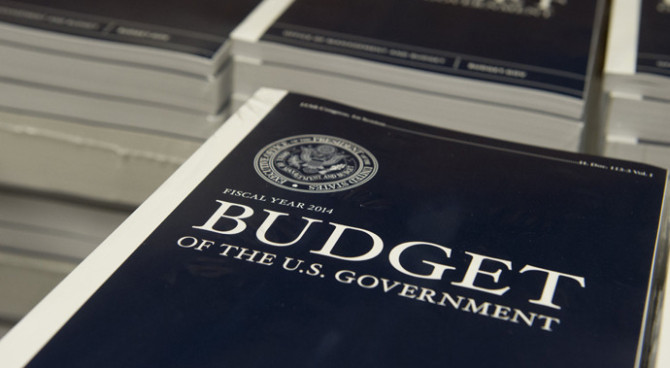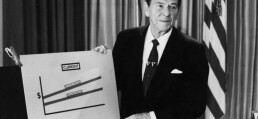Some GOP lawmakers have forgotten that politics is about what’s possible, not what’s perfect.
Nowhere have Republicans done themselves more harm than in debasing the GOP’s brand as the party of fiscal responsibility, less government and more freedom. House Speaker Kevin McCarthy’s effort to get 218 Republicans to vote to raise the debt ceiling in exchange for spending cuts is the beginning of our reclamation. Republican House members can learn from the success of the Reagan era. As one of the authors of that success, I offer some Dutch Uncle advice.
The road to adopting the Reagan program and changing America was paved with bitter compromises. If perfection is what you’re after, then running for Congress was the wrong decision. I never wrote or voted for any major legislation that didn’t contain something I opposed. If you can’t compromise, you can’t legislate or govern.
Every part of the Reagan budget, defense buildup and tax cuts contained gut-wrenching defeats and painful compromises. One bitter example: Nobody who ever took the oath of office was more committed to free trade than I was. My conviction was based on evidence, not just faith. I understood trade and its importance to America’s prosperity and success in the Cold War. During my first year in the Senate that core conviction was tested when I put my political future in jeopardy by killing an amendment to impose an oil import fee and had to spend nine long months defending that vote all over Texas.
Earlier, during debate on the 1981 Reagan budget reconciliation bill, Democratic then-Rep. John Breaux came to me with an offer: He and his Louisiana colleagues would vote with us on all amendments and on final passage in exchange for our commitment not to try to kill the sugar program—one of the most rotten in a government festooned with rotten programs. Its protective quota doubled the price of sugar to benefit a very small special interest.
I dutifully trudged down to the White House to relay Mr. Breaux’s offer. Reagan asked me what I thought we should do. In a rush of emotion my college-professor idealism embarrassingly brought tears to my eyes as I explained that I didn’t come to Congress to save the sugar program. Reagan assured me that he didn’t become president to save it either. Then he asked the relevant question: Could we win without cutting the deal? I told him I wasn’t confident.
I hated the compromise, but passage of the reconciliation bill—with its spending cuts, defense increases and tax cuts—was so important to the future of the country that I advised the president to take the deal and commit to leaving the sugar program alone. Reagan sighed and said, “I guess this is what they call kissing the pig.” We kissed a passel of pigs in ending the inflation, rebuilding the economy and winning the Cold War. It was worth it.
When the reconciliation bill passed, Mr. Breaux was asked by the media if it was true that he sold his vote. “No,” he answered, “I just rented it.” That is how government works. If you don’t have the stomach for compromise, do yourself and the country a favor by leaving Congress and going into something like the priesthood.
On the last day of the debate, with the vote still very much in doubt, I approached Rep. Ron Paul, Republican of Texas, who had said he was going to vote against the reconciliation bill because it had a deficit. I begged him to vote with us since his vote might be critical, but he said he couldn’t. He’d made a commitment never to vote for a budget that had a deficit. In vain, I tried to explain that it wasn’t possible in 1981 to write a budget without a deficit that had any chance of being adopted. I have often wondered what he would have told his grandchildren had the Reagan program failed. I guess he would have said: Yeah, America went to hell while I was in Congress, but I voted against it every step of the way.
I ask Republican House members today to remember the old Alice Cary poem: “True worth is in being not seeming,— / In doing each day that goes by / Some little good—not in dreaming / Of great things to do by and by.” The test of any legislation is whether the country is better off with the change than it would have been without it. If Republicans apply that simple test, we can use the debt ceiling to begin to rein in the post-pandemic spending surge now and use the appropriations process to reduce spending even more later. Neither change will be as much as we want, but the country will benefit from both, and Republicans need to get in the habit of winning.
Mr. Gramm is a former chairman of the Senate Banking Committee and a nonresident senior fellow at American Enterprise Institute.



